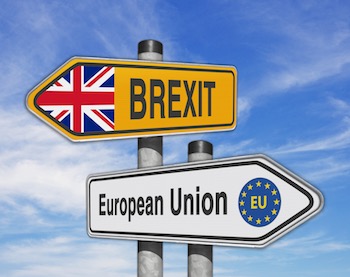 On 23 June 2016, the British citizens will hold their referendum on the country’s membership in the European Union. Should they vote for the UK to leave the EU (the so-called ‘Brexit’), the new European unitary patent system is likely to collapse before it started.
On 23 June 2016, the British citizens will hold their referendum on the country’s membership in the European Union. Should they vote for the UK to leave the EU (the so-called ‘Brexit’), the new European unitary patent system is likely to collapse before it started.
At the moment, most patentees who seek protection in Europe use the “European patent” system – which in fact does not provide for a single patent but for a bundle of patents that may be obtained separately in 38 countries. The European patent has nothing to do with the European Union.
That is where the difference to the unitary patent lies: The unitary patent is supposed to become the most essential intellectual property right in the European Union. The unitary patent would grant uniform patent protection throughout the participating 25 member states of the European Union, based on one application alone. There would be a single fee regime and a single court, the Unified Patent Court (UPC). Different from the owner of a European bundle patent who may have to file court actions in 38 countries to enforce his right, the owner of a unitary patent could protect his legal interest within the European Union by filing one action in the UPC. A lot of cost would be saved.
Why would Brexit vote put the unitary patent at risk?
France, Germany and the UK are the three dominant players in the European patent world. They are the three countries with the highest numbers of patent applications in Europe. French, German and English are the only three languages in which a unitary patent may be prosecuted. And Paris, Munich and London are the three locations of the UPC’s central division.
In France, the Assemblée Nationale approved of the Unitary Patent Court Treaty as early as on 13 February 2014, and the ratification followed a month later. The UK has not ratified the Treaty yet, and one should rule out that it will do so before the referendum on 23 June 2016. “Should the UK indeed vote for Brexit, the most likely scenario is that the unitary patent system would have to be re-negotiated altogether”, explains Boris Uphoff, partner in the international law firm McDermott Will & Emery. “First, the Unitary Patent Regulation states that the unitary patent cannot start before the Unitary Patent Court Treaty has been ratified by the UK. That alone means that the unitary patent were to be put on hold in case of Brexit vote. As a non-member of the EU, the UK could not participate in the unitary patent as a EU intellectual property right”, believes Uphoff. “Without the UK with its market size and its reputation for patent litigation, the unitary patent would lose substantial value”, adds Laura Morelli, counsel in McDermott’s Paris office.
In case of Brexit, London would have to be given up as a location for the UPC. English judges, who are known to be among the most experienced patent practitioners in the EU, could not apply to become judges at the UPC.
If there indeed was a vote for Britain to leave the EU, the remaining member states of the EU would have to re-negotiate the unitary patent. They would have to consider whether a unitary patent excluding the UK would make sense at all. Patent applicants could of course file one patent for the UK and a unitary patent for the rest of the EU, but such a double-application would defeat the cost saving effect of the new unitary patent system which Brexit would likely destroy.
In theory, the UK could ratify the Unitary Patent Treaty even after the Brexit vote on 23 June 2016. The UK would then participate in the unitary patent during the two-years interim period that the Lisbon Treaty provides for member states who decide to leave the EU. In practice, the UK joining the unitary patent system while already walking towards the EU’s exit door would not be feasible, Uphoff and Morelli explain. First, it would be entirely unclear what protection unitary patents would enjoy in the UK after Brexit comes into force. Secondly, opening a UPC section in London and closing it again a few months later would be poor practice. Even if Brussels and London agreed for the UK to play an associated role in the unitary patent system after Brexit, the UK could not host judicial power. That also means that English judges located at the UPC’s sections in Paris and Munich would have to be removed from office after Brexit came into force.
If the UK was to refuse to ratify the European Patent Court Treaty after the exit vote on June 23 2016, the Treaty would also need to be renegotiated so that UK ratification is no longer required for the Treaty’s entry into force. Without such renegotiation, this requirement would only cease to apply when the UK has in fact left the EU.
As recent polls suggest, the UK referendum on 23 June 2016 will be a head to head race between Brexit supporters and those favouring a continued membership of the UK in the European Union. Brexit would mean a dramatic impact on the European patent world.
UPDATED Wednesday, May 4, 2016 at 11:56 am ET.

![[IPWatchdog Logo]](https://ipwatchdog.com/wp-content/themes/IPWatchdog%20-%202023/assets/images/temp/logo-small@2x.png)


![[Advertisement]](https://ipwatchdog.com/wp-content/uploads/2024/05/Quartz-IP-May-9-2024-sidebar-700x500-1.jpg)
![[Advertisement]](https://ipwatchdog.com/wp-content/uploads/2024/04/Patent-Litigation-Masters-2024-sidebar-700x500-1.jpg)

![[Advertisement]](https://ipwatchdog.com/wp-content/uploads/2021/12/WEBINAR-336-x-280-px.png)
![[Advertisement]](https://ipwatchdog.com/wp-content/uploads/2021/12/2021-Patent-Practice-on-Demand-recorded-Feb-2021-336-x-280.jpg)
![[Advertisement]](https://ipwatchdog.com/wp-content/uploads/2021/12/Ad-4-The-Invent-Patent-System™.png)






Join the Discussion
5 comments so far.
Tim Hewson (UK and European Patent Attorney)
June 29, 2016 11:00 am“Patent applicants could of course file one patent for the UK and a unitary patent for the rest of the EU, but such a double-application would defeat the cost saving effect of the new unitary patent system which Brexit would likely destroy.”
I think that this could be clearer. UK and (EU-UK) would still be covered by a single EP application (filed under the EPC which is an international treaty which has nothing to do with the EU and which the UK will continue to be party to -along with non-EU states such as IS, TR and NO) What you would need to do post-brexit is *validate* for the UK separately to validating with unitary effect for the EU participating states. Given that the UK has no national translation, Power of Attorney or other national validation requirements, the extra cost post-brexit of validating in the UK and a handful of other countries will be very little changed. Looking solely at validation costs, the extra cost of having the UK outside of the Unitary Patent system will be small compared to the cost of having Spain outside the UP system, because Spain requires a Spanish translation for validation. So from a validation cost point of view, Brexit changes very little.
Renewal fees for the UK will need to be paid separately to the Unitary renewal fees, so this will be a moderate cost increase post-brexit (UK renewal fees are not particularly expensive) and, I suppose, an extra administrative hassle.
What *will* be lost is the inclusion of the UK in the multinational jurisdiction of the Unified Court (and the loss of the involvement of UK judges and probably the loss of the part of the central division which the UK tax payer has just paid to be fitted out in the Aldgate Tower, London) . Whether you view that as a good thing or not will depend on whether or not you intended to use this new court. If your plans were to opt out anyway, then what have you lost ?
Now that we have the vote for Brexit, will the UP and UPC still happen?
Well, until the UK has left (which will not happen until the withdrawal is negotiated 2+ years from now), it can’t happen without the UK ratifying the Agreements. The UK *could* do that, but I think it will be politically impossible (this is only a guess, but the UK public have just voted for “less Europe” it would be perverse for the UK Government to move forward with an initiative that provides for “more Europe”) and it would also present practical difficulties with the London part of the Court – it wouldn’t make sense to launch a Court in London and then almost immediately close down the London part of the Central Division (and foreseeing that issue would Germany ratify even if the UK did?).
The alternative would be to renegotiate the agreement to exclude the UK, and that could happen before we leave the EU (ES is a non-participating EU member state and the UK could adopt that status until EU withdrawal). I don’t expect this option to be quick and it carries the danger of opening a can of worms on issues such as language (the justification for giving English a dominant role is weakened by the UK withdrawal).
Another option would be to keep the Agreements as they are and wait for UK withdrawal to come to pass. Italy would need to ratify along with Germany for entry into force as it would take the UK’s place as one of the required “top-3” patenting countries. This would leave the problems of the London Court to be resolved but I understand that that could be done without reopening the main agreements. Politically, this might be possible. There is the danger that the wrangling about court locations and language would derail the agreement, but equally there might well be political will to get the UP/UPC up and running without the UK as a political demonstration that life goes on post-Brexit.
Valuationguy
April 29, 2016 12:48 pmGene,
While A.Nony Mous and HSP can speak for themselves…I think the tone was one that the above article above appeared (to me if no one else) that it was using this Unitary Patent issue as yet ANOTHER FEARFUL REASON why Britain should vote NO on the BRIEXIT.
Given the two are separate issues…it is somewhat correct to take a skeptical view of two (likely) pro-EU authors (one from Germany, one from Paris)…and ask if there is an underlying political agenda here.
I don’t have any problem with the info presented….which I found useful for the most part…but the title and semi-alarmist tone at the beginning of the article (in light of the admission close to the end that this worry could be meaningless) suggests the article is more a low-scale prop piece to influence readers to vote no.
Gene Quinn
April 29, 2016 11:06 amHSP-
I love your confidence with respect to things that have not yet happened. Talking about them as if they are guaranteed and there is no possible way that they won’t happen seems rather naive when dealing with the world of politics, particularly international politics. Perhaps you will wind up being correct. The smart money is on you being correct. But the fact that you will wind up correct does not actually mean there is at present a 100% certainty.
-Gene
A. Nony Mous
April 29, 2016 05:17 amSorry, but this is piffle. The Unitary Patent/UPC train will leave the station, and the worst a Brexit would do is delay the process. It means that the London bit of the Central Division would have to find a new home, and that British lawyers would not be able to represent clients with respect to a Unitary Patent before the UPC (but UK European patent attorneys would!). One of the two statutory instruments required for the UK to ratify the UPC has already passed Parliament, and the other one will do so before any Brexit – and the British ratification will stand.
HSP
April 29, 2016 03:44 amThe British Goverment had already officially announced on March 1st 2016 that UK will ratify the UPC-Agreement anyway, whatever the outcome of the referendum will be. Thus, there is no room for such speculation, anymore.